Corpus VR
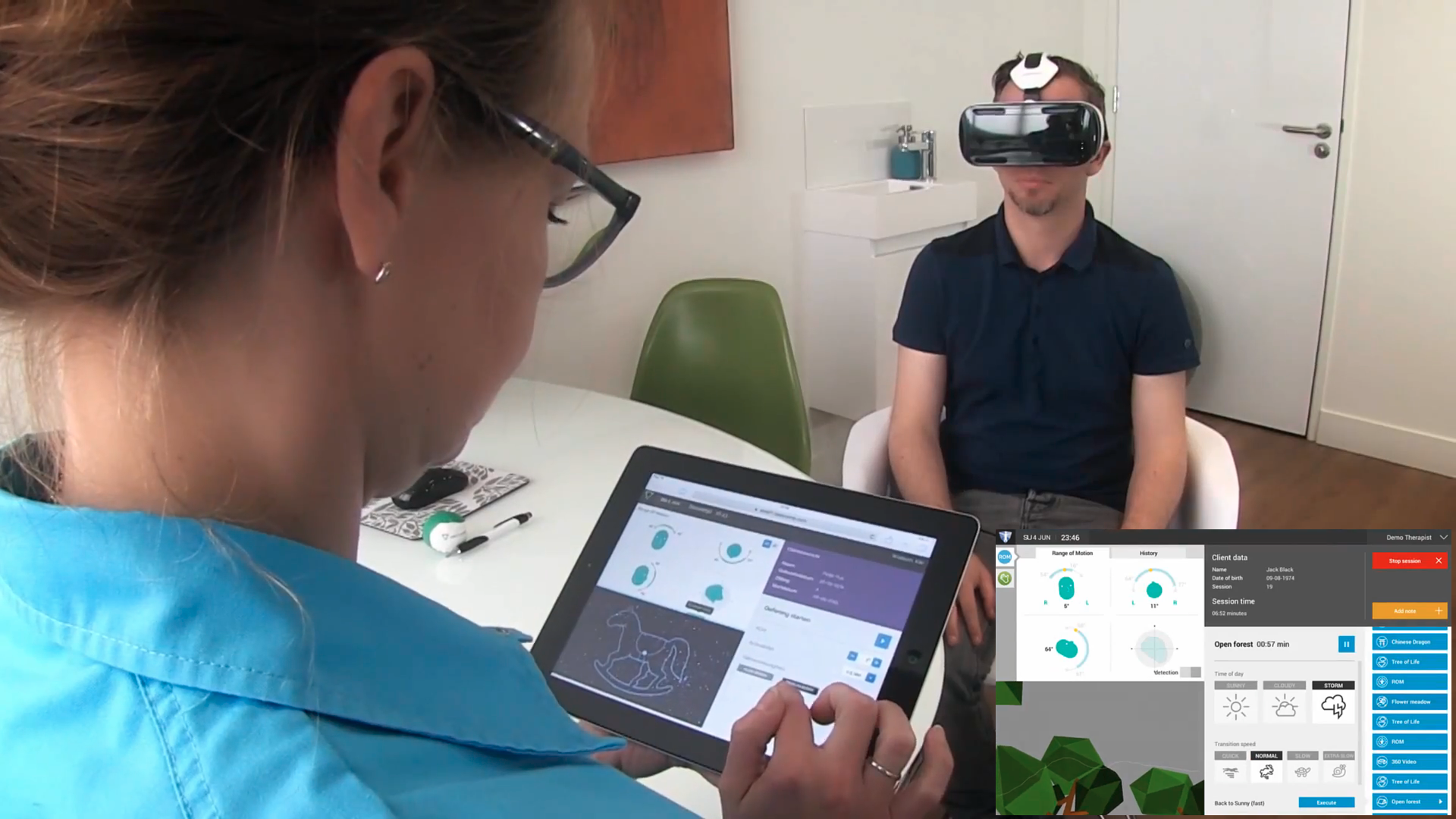
The project: Corpus VR brings virtual reality to physio- and neurotherapy. It is a platform that engages patients on gamefied reabilitation exercises and provides the therapist with accurate data about the treatment’s progress.
Role: Game Developer
Duration: The product is on the market, but it’s under continous development. I started working on it on February 2019.
Team size: 6
Platform: PicoVR and Meta Quest for the headset. Android and iOS for the dashboard.
Engine/Language: Unity/C#
Website: Corpus VR
Sphere Generator (2024)

Sphere Generator is a free Unity package/plugin that generates spheres (UV, cube and icospheres) of arbitrary detail levels procedurally. It’s extremely useful when Unity’s standard sphere mesh doesn’t contain enough detail for your needs and/or you don’t want to restrict yourself to pre-generated meshes. Its first version (1.0.0) was released in May 2024, and its latest version is 1.1.1.
Sphere Generator’s icosphere development process was documented in the following blog post:
Sphere Generator is distributed under the terms of the MIT license.
Role: Game Developer
Team size: 1
Platform: Unity tool
Engine/Language: Unity/C#
Package: Sphere Generator on OpenUPM
Source code: Sphere Generator on GitHub
Min/max Range Attribute (2023)
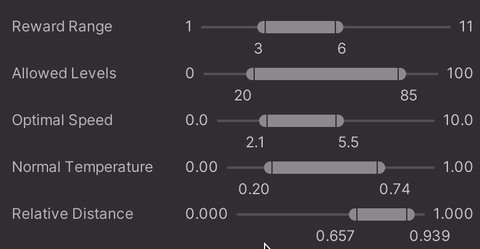
Min/max Range Attribute is a bounded (i.e., with a minimum and maximum) range attribute for Unity’s Vector2 and Vector2Int fields that draws fields as min/max range sliders, easing the definition of bounded ranges on the inspector. Its current version is 1.0.3.
Min/max Range Attribute is distributed under the terms of the MIT license.
Role: Game Developer
Team size: 1
Platform: Unity tool
Engine/Language: Unity/C#
Package: Min/max Range Attribute on OpenUPM
Source code: Min/max Range Attribute on GitHub
Terraced Terrain Generator (2023)
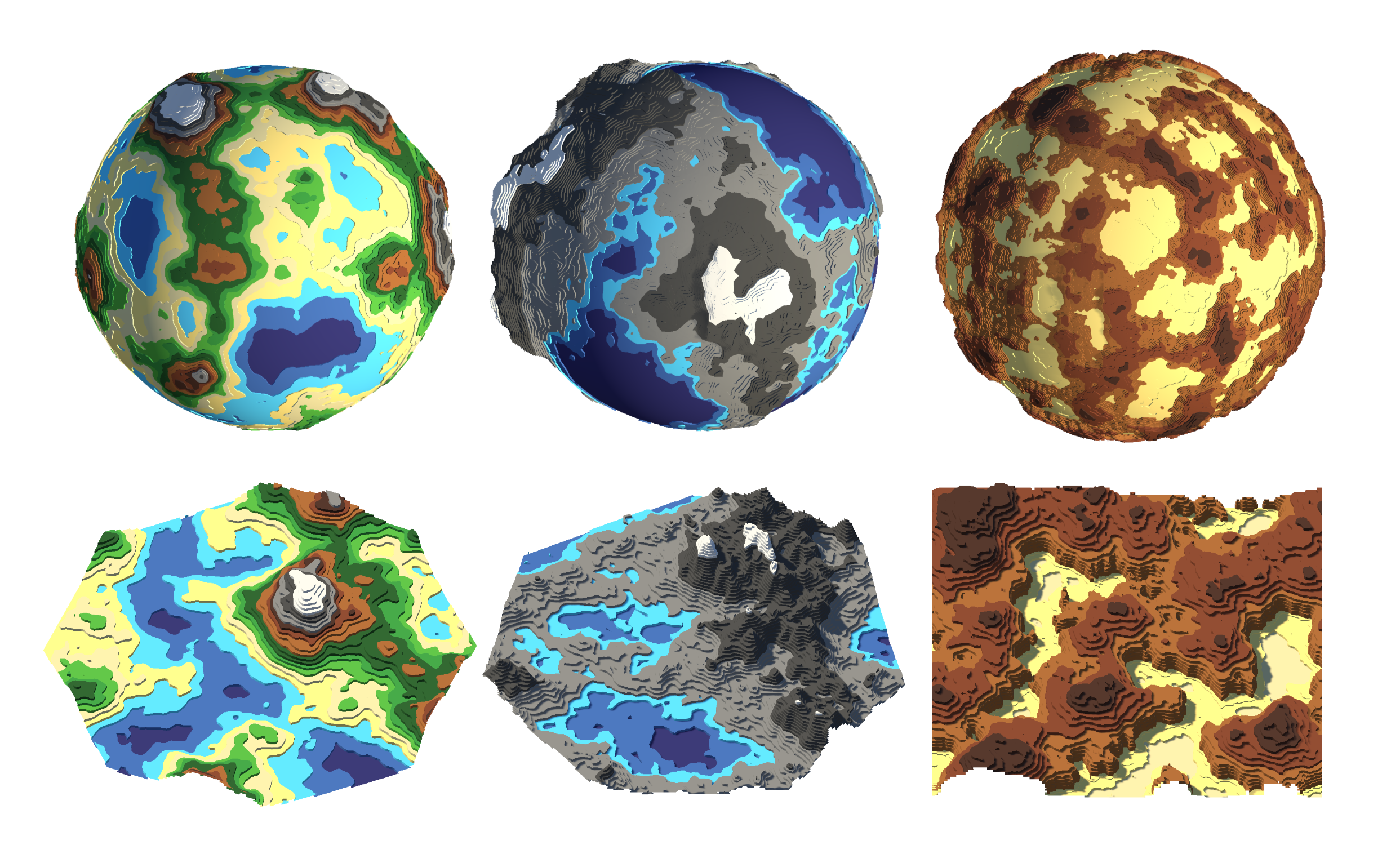
Terraced Terrain Generator (TTG) is a free Unity tool for the procedural generation of terraced terrain meshes like the ones in the picture above. Its first version (1.0.0) was released in April 2023, and its latest version is 2.0.2.
TTG’s development process was documented in the following blog posts:
- Developing a Terraced Terrain Generator.
- Terraced Terrain Generator performance improvements.
- Adding custom terrace heights to Terraced Terrain Generator.
- Adding more detail to Terraced Terrain Generator using Perlin noise octaves.
Terraced Terrain Generator is distributed under the terms of the MIT license.
Role: Game Developer, Project Manager
Team size: 1
Platform: Unity tool
Engine/Language: Unity/C#
Package: TTG on OpenUPM
Project management: TTG on Trello
Source code: TTG on GitHub
Parker - The Game (2022)
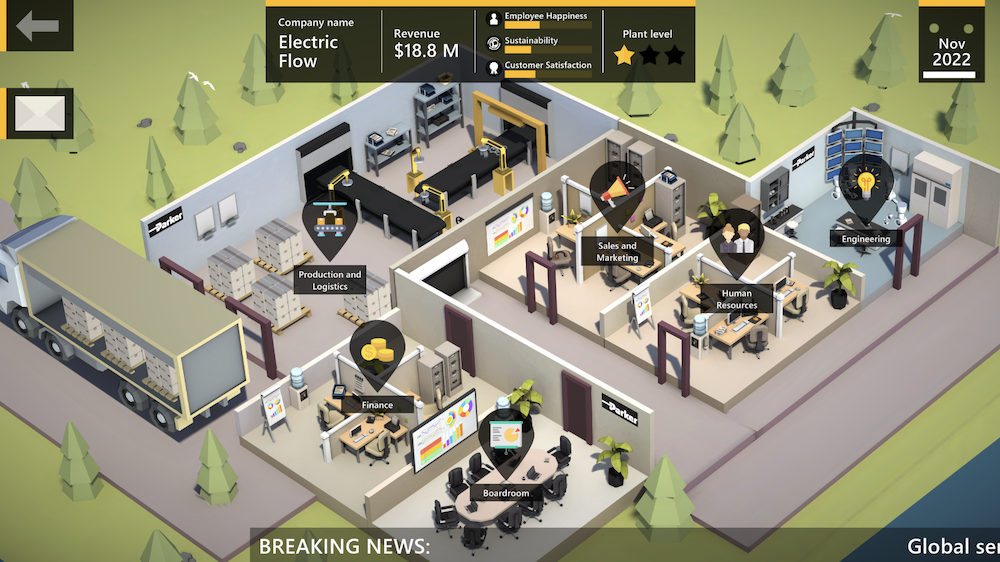
This was my last project at Fantazm. It was also my first solo full-stack game project, from conception to delivery. Parker - The Game is an online multiplayer turn-based team strategy game commissioned by Event Creators for their client Parker Hannifin Netherlands.
You can read more about the project on the postmortem I wrote about it.
Role: Game Developer, Game Designer
Team size (development): 3
Platform: WebGL
Engine/Language: Unity/C#
Air Hockey (2021)
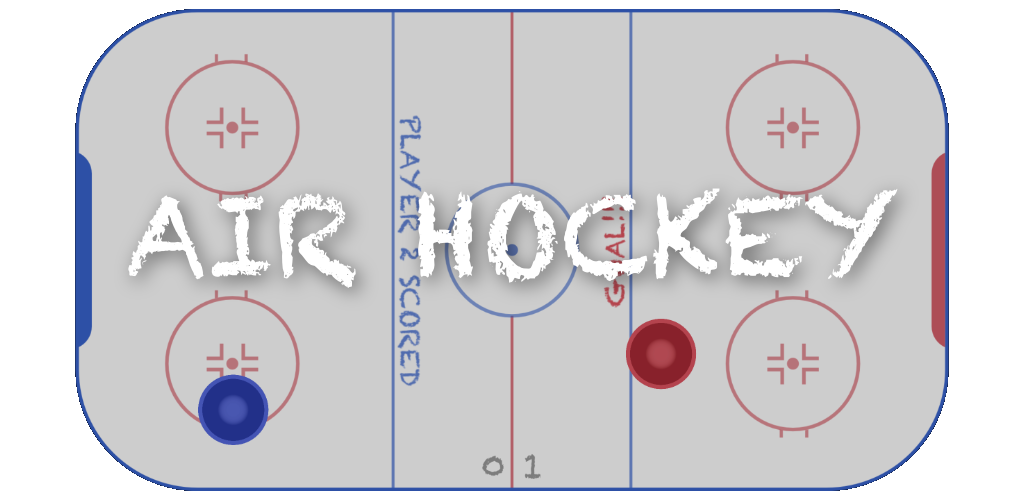
Air Hockey is a 2D local multiplayer game with four match modes: highest score, best of score, time limit and endless. The game is a simple toy project with two purposes: practice 2D game development and kick-start the development of complete games as personal side projects. I chose a simple game genre intentionally, to ease the development and increase the changes of it making into a complete game.
All code and art assets (except for the audio) were created by me. You can access the project’s Trello board for the its roadmap and development history.
Role: Game Developer, 2D Artist, Project Manager
Team size: 1
Platform: Android
Engine/Language: Unity/C#
Source code: Air Hockey on GitHub
Re-spinning the Yarn (2019)
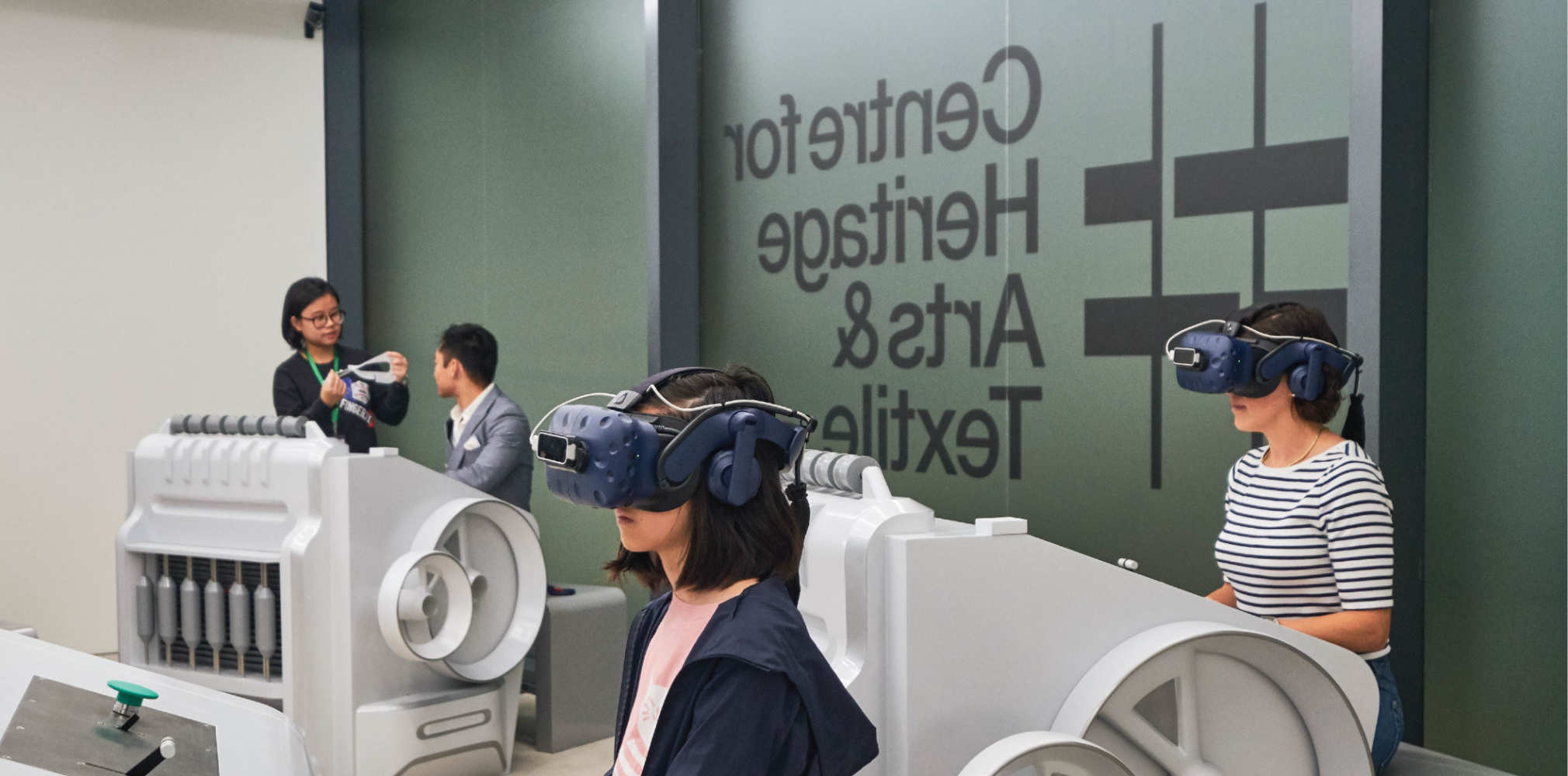
I briefly worked on “Re-spinning the Yarn” at Media Monks (now Monks), as a game developer outsourced from Fantazm. The project tells the story of cotton-spinning mills in Hong Kong using Virtual Reality. During the couple of weeks I joined the project for, I was responsible for feature development and bug fixes.
You can read more about the project on the Center for Heritage, Arts and Textile’s website and watch a short video about in on YouTube.
Role: Game Developer
Team size: ~8 people, from different domains
Platform: PC VR, HTC Vice, Leap Motion
Engine/Language: Unity/C#
Client: CHAT (Center for Heritage, Arts and Textile), Hong Kong
Voedingscentrum VR (2019)

The project: A VR experience that playfully teaches children how to develop healthy eating habits develped by Fantazm.
Role: Game Developer
Duration: 6 months
Team size: 6~8
Platform: SteamVR with HTC Vive
Engine/Language: Unity/C#
I developed most of the gameplay in this project, including SteamVR and Leap Motion integration. You can read more about this project on the postmortem I wrote on it.
SkyVu Places VR Beta (2017)
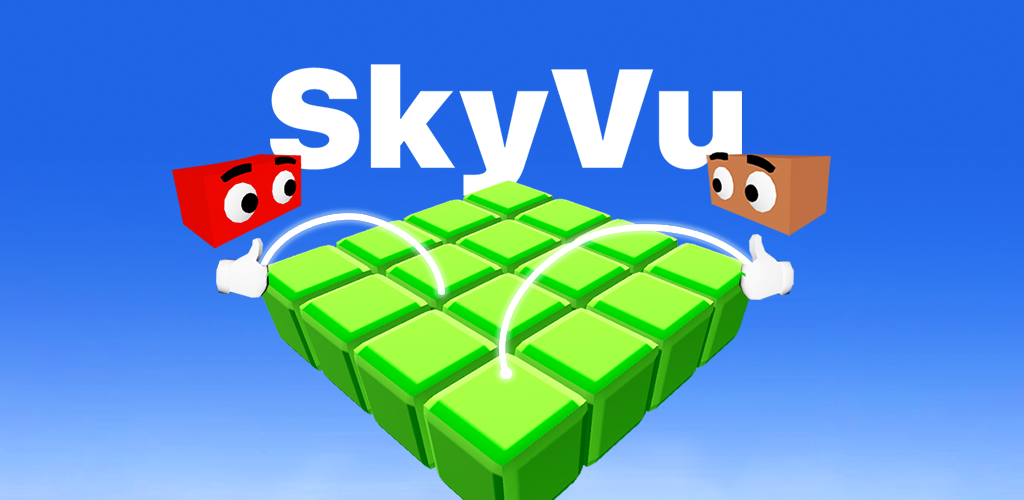
The project: SkyVu Places Beta was a beta for a social VR world builder from SkyVu Entertainment.
Role: Game Developer
Duration: 2 months (May-June 2016)
Team size: 5
Platform: Google Draydream and GearVR
Engine/Language: Unity/C#
In this project, I developed early prototypes in GearVR, on initial stages of development. This was a great learning experience both for me and the development team, given that it was our first time developing a VR experience. We had to build the prototype from the ground up, given that at the time Unity didn’t have a rich VR community and marketplace.
Overclock (2016)
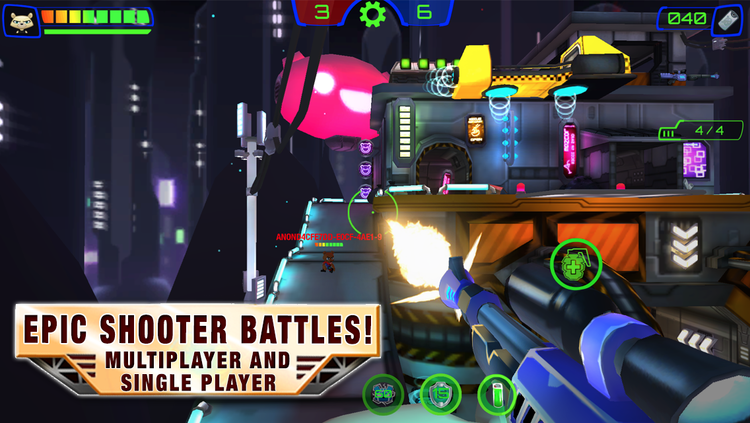
The game: Overclock (formally Battle Bears Overclock) is a mobile multiplayer first person shooter game developed by SkyVu Entertainment and is part of the successful Battle Bears mobile franchise, which games have been downloaded more than 30 million times in total.
Role: Game Developer
Duration: 1 year
Team size: 6~11, Scrum team
Platform: Android and iOS
Engine/Language: Unity/C#, JS for server side code
As a game developer, I:
- Focused on gameplay programming using Photon Networking and backend programming using JavaScript with PlayFab.
- Applied performance improvements (Unity Profiler, Xcode, Android Profiler) to port the game to older devices.
- Integrated third-party plugins: PlayFab, OneSignal, GameAnalytics and TextMeshPro.
- Localized the game, including translating it to Brazilian Portuguese.
Operação Abaporu (2015)
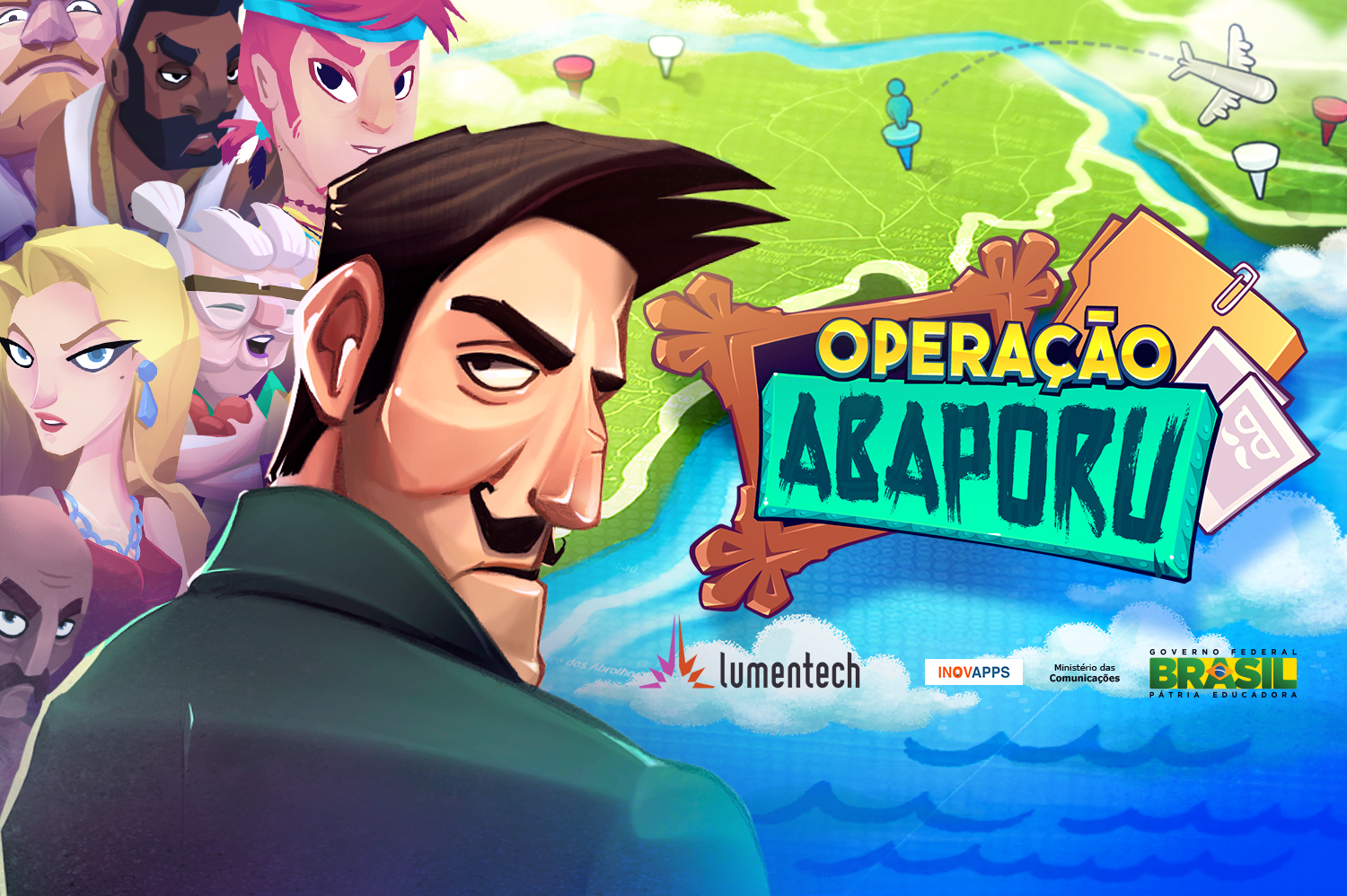
Operação Abaporu is a mobile investigation game developed by the Brazilian company Lumen Games. The game was part of a project created by the Brazilian government.
Role: Game Developer
Duration: 5 months
Team size: 6
Platform: Android and iOS
Engine/Language: Unity/C#
Website: Operação Abaporu
As a game developer, I:
- Extended the Unity engine to create a game database using Scriptable Objects and a UI to edit it.
- Built the game UI (layers, stacks, transitions) using UnityUI.
- Developed most of the gameplay.
- Reduced the application size and memory usage (using Unity Profiler, Xcode, Android Profiler) in order to ship the game to older devices.
Let it Goat! (2014)

The game: Let it Goat! (named after a famous meme) is an infinite runner developed by SkyVu Entertainment’s SkyLab as a side project to the Battle Bears games. The game was released on iOS and Android. The original version of the game isn’t available to download any longer.
Role: Game Developer (remote)
Duration: 6 months
Team size: 6, Scrum team
Platform: Android and iOS
Engine/Language: Unity/C#
I worked on Let it Goat! remotely, from my hometown Aracaju, in Brazil. As a game developer, I:
- Developed a multiplayer mode with a leaderboard system in which you could challenge other players.
- Helped to build the game UI with NGUI (the standard at the time).
- Implemented 2D assets (sprites, animations, parallax) with Toolkit2D.
- Assisted the development of the (procedurally generated) level creation engine.
- Adapted a version of the game to be launched in China.
Battle Bears Ultimate (2013)
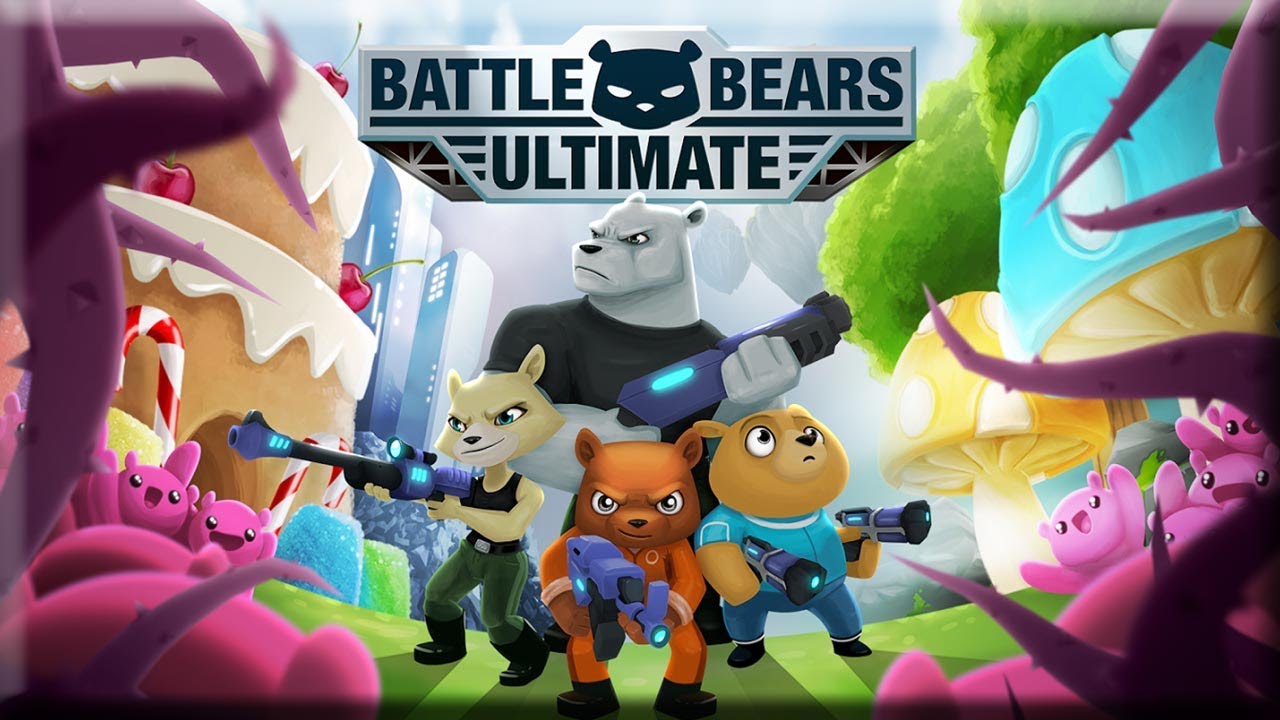
The game: Battle Bears Ultimate (BBU) was a online multiplayer first person shooter released by the American company SkyVu Entertainment (Omaha, Nebraska) in 2013. The mobile game was available on iOS and Android and was part of the successful Battle Bears mobile franchise, which games have been downloaded more than 30 million times in total.
Role: Development
Intern Duration: 4 months
Team size: 12~15, Scrum team
Platform: Android and iOS
Engine/Language: Unity/C#
This was my first professional experience in Game Development. As a Development Intern in the company during the summer of 2013, I extended the Unity editor, creating a level editor tool in C# to speed up the creation of maps and enable server-side fine tuning of levels via JSON files. In addition, I fixed gameplay bugs reported either by the QA team or by beta testers.





